
Samuel M. Raimi is an American filmmaker. He is best known for directing the Spider-Man trilogy (2002–2007) and the Evil Dead franchise (1981–present). He also directed the 1990 superhero film Darkman, the 1995 revisionist western The Quick and the Dead, the 1998 neo-noir crime-thriller A Simple Plan, the 2000 supernatural thriller film The Gift, the 2009 supernatural horror film Drag Me to Hell, and the 2013 Disney fantasy film Oz the Great and Powerful. His films are known for their highly-dynamic visual style, inspired by comic books and slapstick comedy.
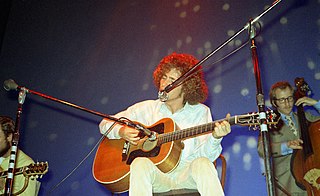
Timothy Charles Buckley III was an American musician. His music and style changed considerably through the years. Buckley began his career based in folk music, but his subsequent albums experimented with jazz, psychedelia, funk, soul, the avant-garde, and an evolving voice-as-instrument sound. He died at the age of 28 from a heroin and morphine overdose, leaving behind sons Taylor and Jeff.

"Don't Lose My Number" is a song by Phil Collins from his third solo album No Jacket Required. The single was not released in the UK, though it peaked at No. 4 in the U.S. in September 1985. The B-side, "We Said Hello Goodbye" was released as a bonus track on the CD for No Jacket Required. In Australia, the single was released with the title "(Billy) Don't Lose My Number".
Colin Campbell (1942–2001) was a Canadian video artist.

Lisa Steele D.Litt. is a Canadian artist, a pioneer in video art, educator, curator and co-founder of Vtape in Toronto. Born in the United States, Steele moved to Canada in 1968 and is now a Canadian citizen. She has collaborated exclusively with her partner Kim Tomczak since the early 1980s.

Tommy Hunt is an American soul/northern soul singer, and a 2001 Rock and Roll Hall of Fame Inductee as a member of famed R&B group The Flamingos.

René Froger, is a Dutch singer.
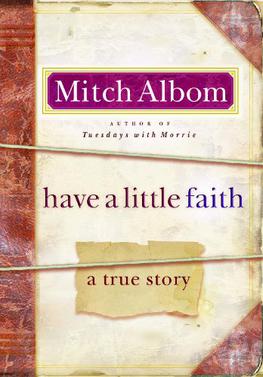
Have a Little Faith is a 2009 non-fiction book by Mitch Albom, author of previous works that include Tuesdays with Morrie and The Five People You Meet in Heaven. It is based on two separate sets of conversations that took place between the author and members of the clergy: a rabbi in a relatively affluent section of New Jersey, and a Protestant minister in a very poor section of Detroit, Michigan.

Frank's Cock is a 1993 Canadian short film written and directed by Mike Hoolboom.
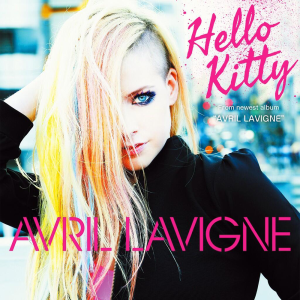
"Hello Kitty" is a song by Canadian singer-songwriter Avril Lavigne, taken from her self-titled fifth studio album, Avril Lavigne (2013). It was written by Lavigne, Chad Kroeger, David Hodges and Martin Johnson. Production was handled by Kroeger and Hodges, with additional production by Brandon Paddock and Kyle Moorman. Musically, "Hello Kitty" is a J-pop, dubstep, and EDM song, featuring an electro-influenced drop. The song was influenced by Lavigne's affinity to the Japanese brand Hello Kitty, and has some sexual content.
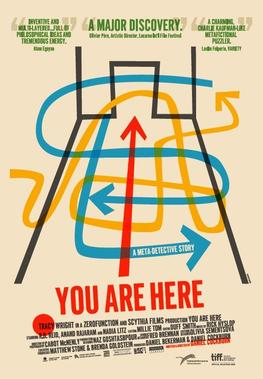
You Are Here is a 2010 Canadian philosophical speculative fiction film written and directed by video artist Daniel Cockburn, which he also co-produced with Daniel Bekerman. Cockburn's first feature film is "hyper-inventive and categorically hard-to-describe", initially billed as a "Borgesian fantasy" or a "meta-detective story", and later as "part experimental gallery film and part philosophical sketch comedy." In You Are Here, Cockburn makes use of the techniques and concepts he had honed over the previous decade as an experimental video artist with "a narrative bent", and "works them into a complex and unique cinematic structure." The film mainly follows a woman searching for the meaning behind a series of audiovisual documents from other universes, seemingly left purposefully for her to find, some of which are shown as vignettes concerning figures such as the Lecturer and the Experimenter interspersed throughout the film. She finds so many of them that they fill a space which she calls the Archive, and herself its Archivist. In time, the Archive appears to resist her attempts at cataloguing and organizing it, and she receives a cell phone instead of the usual document, leading to a fateful encounter with others.
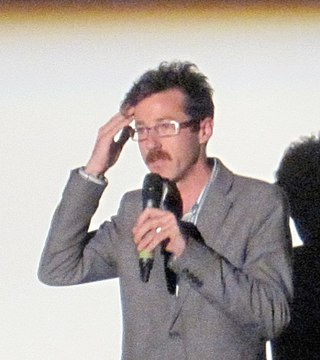
Daniel Ernest Cockburn is a Canadian performance artist, film director and video artist. Cockburn won the Jay Scott Prize in 2010 and the European Media Art Festival's principal award in 2011 for his debut feature film You Are Here.

Metronome is a 2002 Canadian short experimental film which mixes appropriated film clips and video by video artist Daniel Cockburn to express ideas about rhythm and order, the self and other minds, and the digital age. Densely philosophical, the work is acknowledged as his international "breakout hit" after several locally successful short works, winning praise from critics, a mention, and an award.
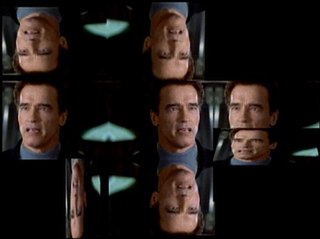
WEAKEND is a 2003 Canadian short experimental film created by video artist Daniel Cockburn, made through a remix of audio and video from The 6th Day, a Hollywood feature film about cloning starring Arnold Schwarzenegger. Commissioned by famefame for the third biennial Tranz Tech Media Art Festival, the work was awarded the Jury prize.
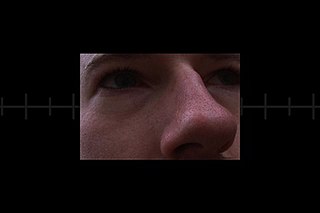
Nocturnal Doubling is a 2004 Canadian short experimental film by video artist Daniel Cockburn based on a thought experiment in Henri Poincaré's essay The Relativity of Space.
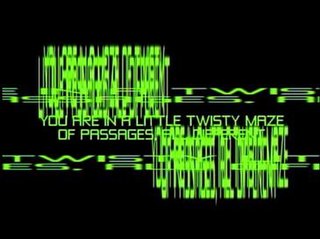
You Are In a Maze of Twisty Little Passages, All Different: Films and Videos by Daniel Cockburn is a 2009 Canadian experimental film anthology consisting of a curated programme of eleven short films by video artist Daniel Cockburn.

The Other Shoe is a 2001 Canadian short experimental film by video artist Daniel Cockburn, his third, which, along with Metronome (2002), earned a mention for the Homebrew Award when shown at the Images Festival and thereby broadened his reputation beyond Toronto.
The Bad Idea Reunion is a 2010 Canadian short experimental film by video artist Daniel Cockburn, in which an infant muses in an internal monologue on the future and the forms its good and bad ideas will take.
Denominations is a 2003 Canadian short experimental documentary film created by video artist Daniel Cockburn about some time spent with American video artist Joe Gibbons.
Stupid Coalescing Becomers is a 2004 Canadian short darkly comic experimental film by video artist Daniel Cockburn about time running backwards as an act of rebellion.

















